
News Briefs, United States
Fate of Mexican Drug War Hinges on Monterrey, Report Says
June 1, 2011 By Andrew OReilly
The city of Monterrey has in four years become a main battleground in Mexico’s drug war and the fate of the Mexican state could hinge on what happens in the city, according to a report released by Reuters.
The influence of drug cartels like the Zetas, who extort local companies and are battling with the Gulf Cartel for control of the city, have changed parts of Monterrey from a cosmopolitan, quasi-European town into a drug haven. Monterrey is home to four million residents and considered one of the country’s industrial, intellectual and business strongholds.
“Known for its private universities, large middle class, modern subway network and 1,800 foreign-run factories, Monterrey was even chosen to host a United Nations conference on development in 2002, attended by some 50 world leaders,” The Reuters report said. “But turn on the television news, flick through the local newspapers or chance to hear the intermittent sound of gunfire in the city’s streets and it quickly becomes clear that there’s a battle being waged for Monterrey between the powerful Gulf Cartel and its former enforcers, the Zetas. And they know no bounds.”
Both the Zetas and the Gulf Cartel want not just to control the city’s smuggling routes to the United States, but to control the city itself. The cartels want Monterrey as a place to live, launder money and extort private companies, the report added.
While the Mexican economy is recovering from the global recession and investments are up, the increase in violence from the drug war has driven some companies to find other places – Texas or other Latin American countries, for example – to do business. A quarter of the maquiladoras, Mexican manufacturing factories, have expansion plans on hold for a second year in a row due to the drug violence and The American Chamber of Commerce in Mexico released a survey stating that the Nuevo León state is now considered one of the four most dangerous states in Mexico.
Monterrey is the capital of Nuevo León.
The violence in Monterrey ramped up in January 2010, when Gulf Cartel members killed a ranking Zeta. The Zetas, who were originally the paramilitary wing of the Gulf Cartel, broke away from their former bosses sometime in 2009 and use tactics such as mutilating bodies and displaying their kills in public places to get their message across.
The Zetas have also infiltrated the police forces in the areas in which they operate. Earlier this week authorities arrested 10 municipal police officers in central Mexico with alleged links to the Zetas, including the director and deputy director of Public Safety of a municipality.
Corruption in local police forces throughout Mexico has led President Felipe Calderón to employ the military in public-security operations. “In states like Nuevo León, the military functions as a shadow police force. Soldiers carry out regular patrols, man checkpoints and respond to shootouts,” said a report by Human Rights Watch.
Threats of violence and kidnapping have also increased the use of security measures for businesses in Monterrey. Small and medium-sized companies are now spending 5 percent of cash flow on security, which did not happen five years ago.
“If you look at the figures, companies are still investing, but there’s a lot of evidence that the money is being diverted into security, not into research and development,” said Rafael Amiel, a Peruvian economist who visits Monterrey once a year to attend a conference, according to Reuters. “This is money that’s going into barbed wire fences, not solar panels and that is going to hurt competitiveness in the long term.”
Some experts look at Monterrey and worry that what is going on the city could soon spread to Mexico City. While the Mexican capital has problems with both drug use and violence, the drug war so far avoided making inroads into Mexico City.
“If we can’t deal with the problem in Monterrey, with all the resources and the people we have here, then that is a serious concern for the rest of Mexico,” said Javier Astaburuaga, chief financial officer at top Latin American drinks maker FEMSA, according to The Reuters report.
Since 2006, when Mexican President Felipe Calderón began the military battle against organized crime almost 40,000 people have been killed and thousands more disappeared.
Photo: aaronernestoortizlopez @ Flickr.
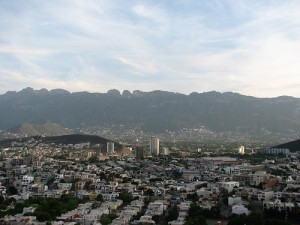


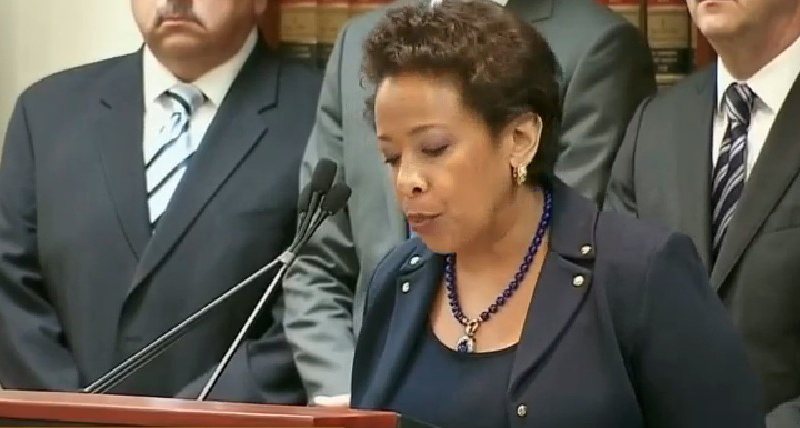
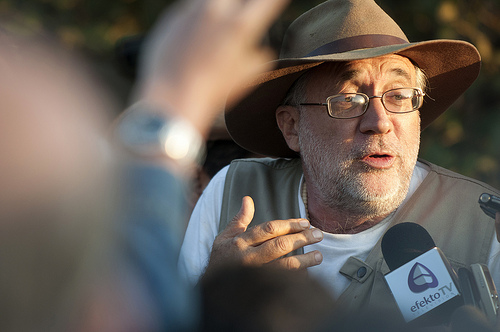
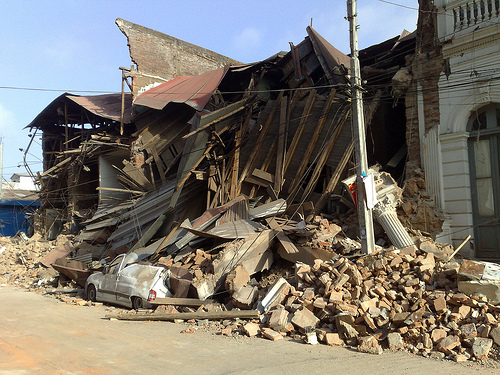
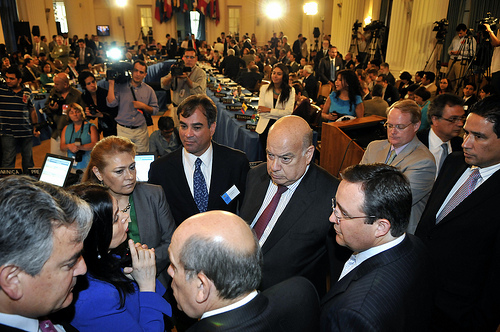
1 Comment
[…] Mexico, which is in the midst of a four and half year old drug war, purchased 132.7 million euros (about $192 million) worth of military equipment, including six transport planes and aircraft parts. […]
Comments are closed.